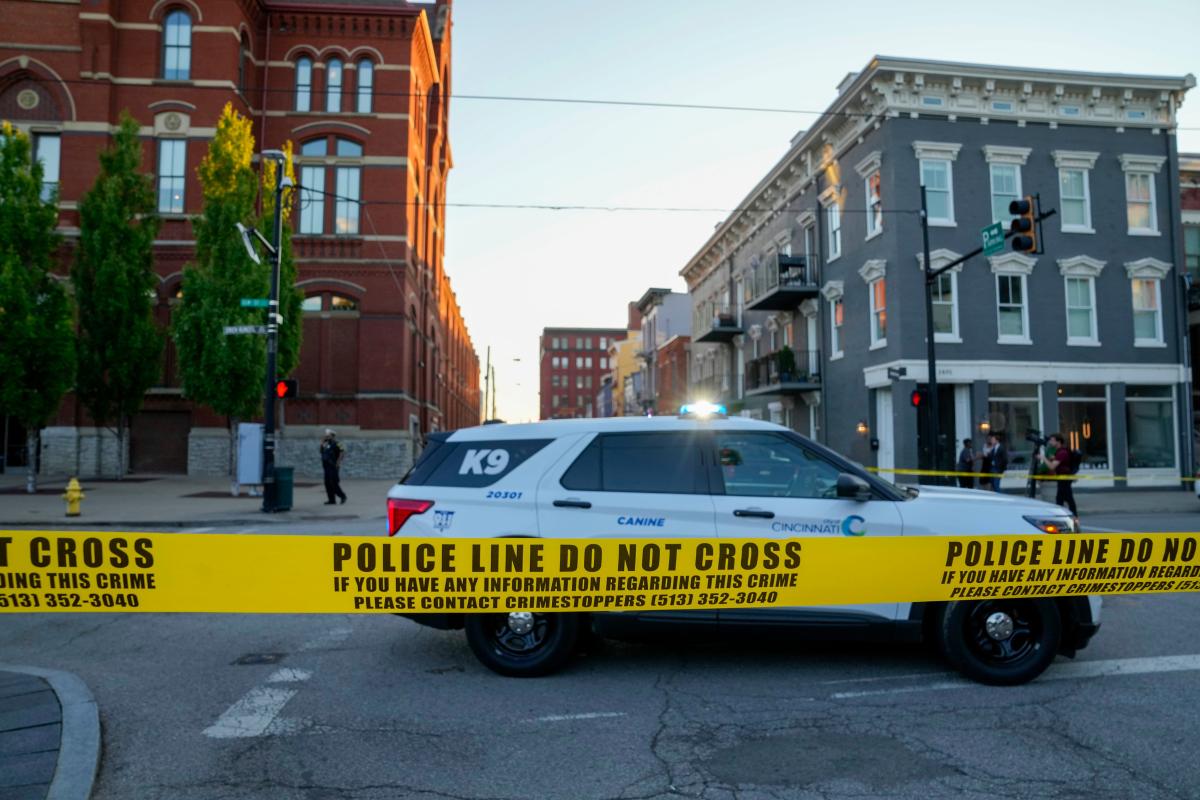When police officers arrest an armed suspect, do they automatically become the victim of a crime? With the passage of a new law in Ohio last year, police departments are making that case clear.
Citing Marsy’s Law — an amendment to the state Constitution designed to provide privacy and other rights to crime victims — Cincinnati police have declined a request from The Enquirer to provide the names of the officers involved in the June 27 fatal shooting of Juan Mack, who stabbed a woman in Westwood and fled from police. Chief Teresa Theetge said Mack pointed a gun at police during the chase and ignored commands to drop his weapon when he got out of his vehicle near Music Hall.
Theetge called the officers’ actions heroic and said the situation “had all the makings of a catastrophic incident.” The shooting occurred about 15 minutes before the premiere of the opera “La Traviata” at Music Hall.
At a news conference, the chief said the officers used the right tactics and that there was little reason to doubt her. Bystander video obtained by The Enquirer supported her early conclusion. Nevertheless, the department has launched an internal investigation and Cincinnati’s Citizen Complaints Authority will launch its own, Mayor Aftab Pureval said.
Before the passage of Marsy’s Law, named for Marsalee Ann Nicholas, a California college student with ties to Cincinnati who was murdered by her ex-boyfriend, it was standard practice for law enforcement to release the names of officers involved in fatal shootings. Public records advocates, including myself, see such transparency as a matter of public trust and accountability. The Music Hall shooting raises no red flags; in fact, officers are being praised for preventing what could have been a tragedy. But what if the video told a different story? What if the shooting raised questions about whether officers were justified in their use of deadly force? The public has a right to know, for example, whether any of the officers involved have an excessive number of citizen complaints or disciplinary actions in their personnel files.
Ohio isn’t the only state grappling with the unintended consequences of Marcy’s Law. Eight other states, including Kentucky, have passed versions of the victims’ rights law, and the courts are now considering it. Last November, the Florida Supreme Court ruled in a Tallahassee police case that Marcy’s Law cannot be used to conceal the identities of officers using deadly force.
The Columbus Dispatch, our sister publication to the north, filed a complaint with the Ohio Supreme Court last October after the Columbus Division of Police repeatedly refused to release body camera footage and the names of officers involved in fatal shootings. At the heart of the complaint is the department’s refusal to file a request for the names of eight officers involved in a shooting last July on Interstate 70 that left a bank robbery suspect dead and an officer wounded. Oral arguments in court have not yet been scheduled.

We did not go to court to seek the names of the officers involved in the Music Hall shooting, but we did ask our attorney to send the city a letter challenging their interpretation of Marsy’s Law. Other police departments around the state, including Canton, have provided names when pressed by news organizations. We hope the city’s law department weighs in and common sense prevails.
Let me be clear: The rights that victims of serious crimes enjoy through Marsy’s Law are a good thing. In fact, The Enquirer has its own policy — which predates Marcy’s Law — that protects the identities of most minors involved in crimes and victims of sexual abuse.
It should also be noted that the issue of allowing police departments to conceal the identities of police officers in certain circumstances is worthy of debate. You can probably guess which side I would take, but it is not out of the question that the debate will be conducted on its own.
What is not okay is taking advantage of the confusion surrounding a new law to circumvent Ohio’s old laws that ensure police officers who are authorized to use deadly force are accountable to the public they are sworn to serve and protect.
Enquirer Executive Editor Beryl Love writes a biweekly column that gives you a behind-the-scenes look at The Enquirer. He occasionally shares his thoughts on local issues, particularly those related to a free press and open government. Email him at blove@enquirer.com. He can’t personally respond to every email, but he reads every one.
This article originally appeared on the Cincinnati Enquirer: Ohio Police Use Marsy’s Law to Protect Officers in Deadly Shootings







